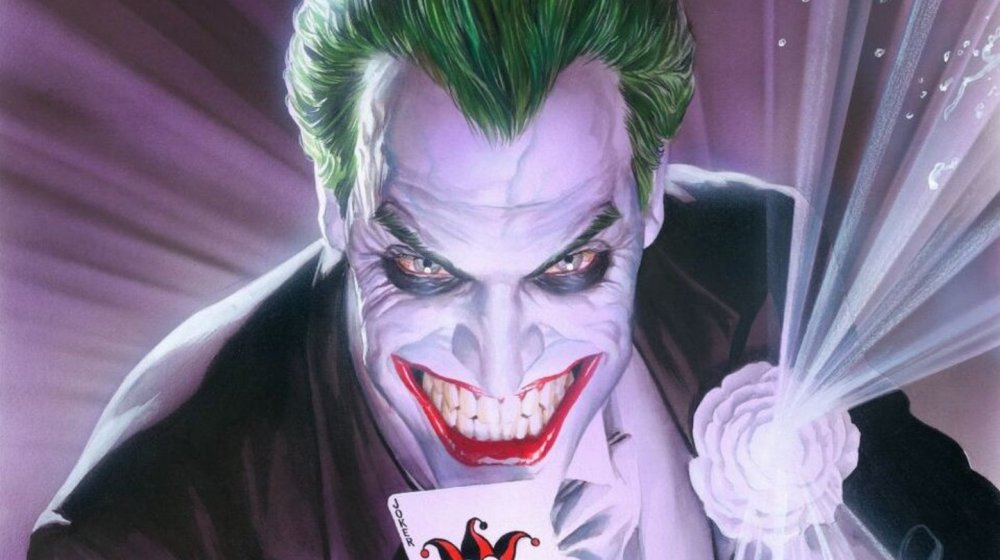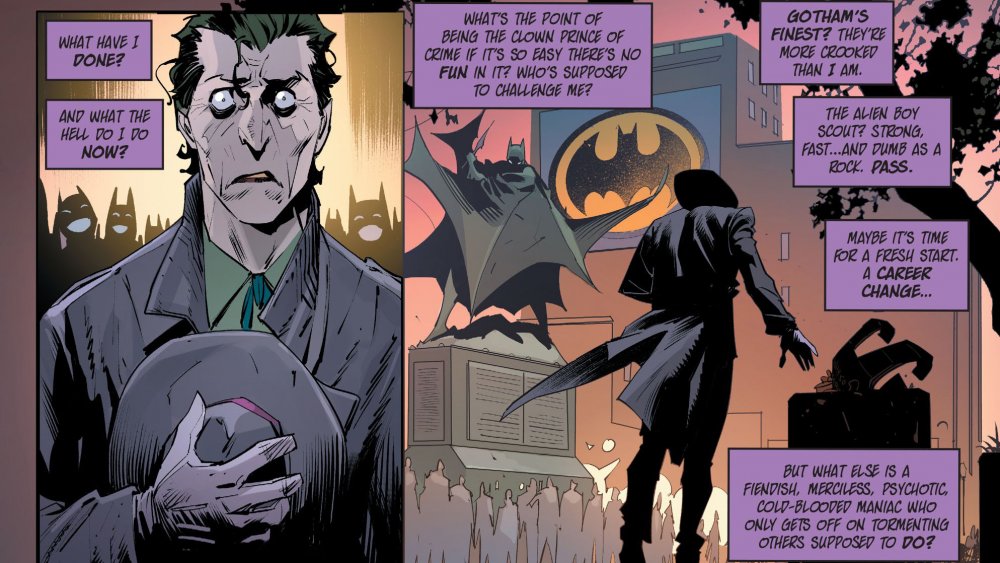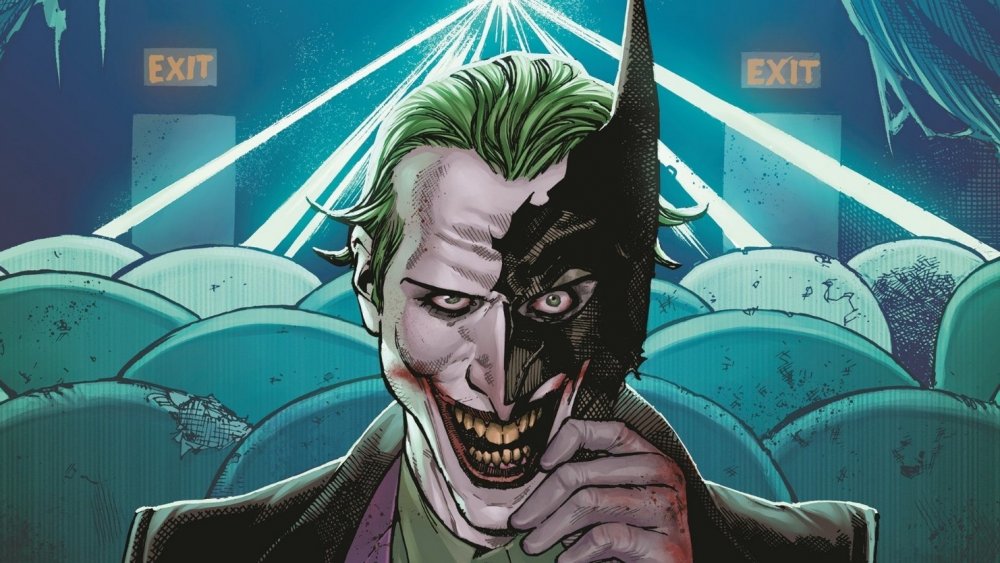This Is What The Joker Would Do If He Killed Batman
There are few better-known sets of mortal enemies than Batman and the Joker. They have been at each other's throats for the better part of a century, and continue strong to this day. Whether it be within the pages of DC comics, on a television screen, or beneath the bright lights of a Hollywood film production, the two are inseparable — for better or worse. Their clashes have become the stuff of legend, although very rarely does one take the life of the other.
The two faced off for the very first time in Batman #1 — published on April 25, 1940. From there, their complex rivalry has mutated into something more. They've played a persistent game of cat and mouse for so long, with neither man getting ahead. Their lives are forever intertwined — each man fixated on being the other's foil. For one to gain ultimate defeat over the other seems unnatural. Simply put, it's difficult to imagine Batman without Joker and vice versa.
Their relationship is thought-provoking, to say the least, especially considering their endgames. Surely the Joker is out to kill Batman, but one has to wonder what would become of him should he ever finally follow through. While various mediums have depicted the Joker killing Batman, there isn't one universal answer as to how the Clown Prince of Crime would handle it. At the same time, there's a common thread to all such stories beneath the surface, painting a clearer picture of his post-Dark Knight existence.
Without Batman, the Joker is directionless
One story that covers this potential event is "Kill the Batman," a part of the The Joker 80th Anniversary 100-Page Super Spectacular by Gary Whitta, Greg Miller, Dan Mora, Ivan Plascencia, and Troy Peteri. In the story, Mr. J bests his rival at long last — leaving Gotham without a Batman to protect it. When the Joker sees that the citizens of Gotham aren't heartbroken and depressed over Batman's death but are instead celebrating Bruce Wayne's life as a hero (Alfred Pennyworth discloses his identity and reveals that Bruce was Batman), he's dissatisfied with his victory and soon realizes a world without his nemesis isn't all it's cracked up to be. In fact, without Batman, the Joker has no motivation to resume his twisted ways.
Following their last fight, Joker goes on to lead a mundane life — eventually leaving the crime world altogether to work at the Gotham Department of Motor Vehicles. He finds out early on that without the thrill of his sworn enemy attempting to thwart his plans, his life has no punchline. This is one of the most common themes in stories like this, further implying how important Batman and the Joker are to each other. Even if they give their all to stop each other, one cannot exist without the other.
Batman and Joker are two sides of the same, crazy coin
There's no debate that Batman is a hero when compared to the Joker, an obvious villain. One saves lives while the other takes them with an unapologetic smile across his face. However, morals aside, the two icons are far less different than either would care to admit. Batman is a grown man who stalks criminals at night, dressed in a suit reminiscent of a bat; the Joker is a literal homicidal clown. To put it lightly, they're both insane in their own ways — it just so happens one of them uses their craziness for good, while the other uses it for evil.
For as visually contrasting as they are, Batman and the Joker are equals in regards to their methodology. The Joker relentlessly goads his foe into a fight, breeding clownish chaos in the streets for Batman to decisively clean up. Their personas are entirely reliant on the existence of their rivalry, ebbing and flowing in such a chaotic manner. Killing one disrupts the cause of the other. In this case, a Joker without a Batman is nothing — coasting through life without his true purpose.


